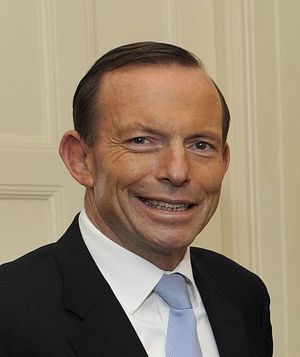Australia may help the U.S. conduct airstrikes against the Islamic State of al-Sham and Iraq (ISIS) in Syria, according to the New York Times.
On Tuesday night, the New York Times published an article that said “the United States has begun to mobilize a broad coalition of allies behind potential American military action in Syria.” The report went on to say that, “White House began its diplomatic campaign to enlist allies and neighbors in the region to increase their support for Syria’s moderate opposition and, in some cases, to provide support for possible American military operations.”
Most of the countries the report listed were indeed ones from the region, including Turkey, Saudi Arabia, Jordan, Qatar, and the United Arab Emirates. However, the report also cited unnamed Obama administration officials as saying that they believe that Great Britain and Australia would be willing to actually join the U.S. in mounting the air assault in Syria.
This assessment, if accurate, isn’t a complete surprise. After all, Australia was one of the most active members of the “coalitions of the willing” that the U.S. organized to help fight the wars in Afghanistan and Iraq.
More notably, as Kevin Placek reported on Oceania last week, Australian security officials have grown increasingly concerned over the threat of homegrown terrorism in recent months.
“The threat of homegrown terrorism and the growing reality of Australians engaging in terrorist activities abroad is becoming a much greater security concern,” Placek reported. Indeed, the Australian government issued a statement earlier this month that warned, “Australian citizens and dual nationals are currently fighting overseas in Iraq, Syria and other conflicts, committing unspeakable atrocities and honing terrorist skills. Many violent jihadists will attempt to return home.”
Around 150 Australians are estimated to be engaged with extremist groups in Iraq and Syria, a number that David Irvine, the director general of the Australian Security Intelligence Organisation (ASIO), recently called “unprecedented.” In some cases, this engagement is limited to supporting extremist groups in the Middle East from Australia. However, many Australians are also traveling to the region to help ISIS fight against the Syrian and Iraqi government, both of which are run by non-Sunni sects. There has also been at least one case of an Australian national carrying out a suicide attack in Iraq.
In response to this growing threat, the Australian government earlier this month announced a host of new counterterrorism measures aimed primarily at identifying Australians who travel to the Middle East to fight with ISIS and other extremist groups and then seek to return home. Participating in U.S.-led airstrikes against ISIS targets in Syria would be a significant escalation on the part of the Australian government, and would reflect its growing concern that a failure to combat ISIS abroad risks inviting terrorist attacks at home. Australia is hardly alone in having this concern, as a growing number of Asian states– from India and China to Indonesia and Malaysia– fear that the rise of ISIS and instability of the Middle East will reverberate at home.
In other words, the conflict formerly known as the global war on terror seems to be going global.

































